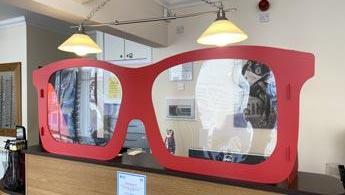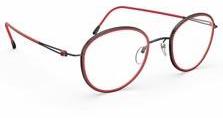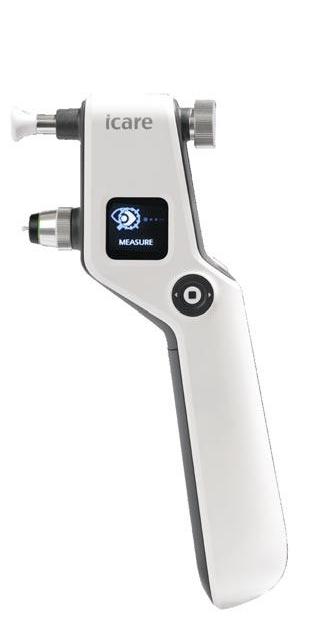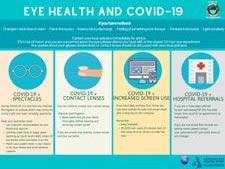
7 minute read
CPD Part 7
Keeping on target with CET
The end of the year is normally a time
Advertisement
when optical practices see a seasonal drop in footfall, and eyecare practitioners are afforded a little extra time to catch-up on tasks they have been meaning to do throughout the year. At the time of writing, the optical sector is navigating the challenges and changes brought about by the Covid-19 pandemic –far beyond anything we could have comprehended at this stage last year. Everyday practises are vastly changed from the pre-pandemic norm. As we prioritise urgent and essential care, the expected lull in full clinical diaries and subsequent drop in patientorientated work time will not materialise.
At the end of 2020 we will be two-thirds through the current CET cycle, which began in January 2019 and ends in December 2021. The statutory requirement for fully-qualified practitioners remains unchanged: registrants are required to obtain a minimum of 36 CET points over the three-year cycle and meet a minimum set of requirements, with additional requirements for contact lens opticians (CLOs) and independent prescribing optometrist speciality registrants1 .
ARE YOU ON TRACK?
The General Optical Council (GOC) expects registrants to obtain a minimum of six CET points per year in order to spread their learning over the full CET cycle. In response to the constraints of the pandemic, this annual point expectance has been relaxed for the current year2 , although registrants are still advised to keep on target by undertaking learning with a time-staged approach.
Of the CET points to be undertaken during the cycle, the requirement remains that a minimum of 18 CET points obtained must be interactive in nature. Interactive CET is designed to prevent risk associated with professional isolation and inability to interact with peers, and is defined by the GOC as involving either a lecture, workshop or peer review event with physical attendance, or distance learning which includes an interactive element1 .
You can find out exactly what your individual CET requirements are, and what you have left to obtain, by either contacting the GOC or by logging in to the MyGOC platform, via the GOC website at www.optical.org. Your individual MyCET dashboard will show the CET points have already obtained and the requirements you have met. This portal also displays your personal development plan (PDP), and provides a facility to search for relevant CET opportunities by competency and type.
A detailed CET guide for registrants can be downloaded from the GOC website at MyCET Downloads. Figure 1: CET is readily accessible online
PLANNING AHEAD: INTERACTIVE CET
Although the GOC reports that the majority of dispensing opticians (DOs), CLOs and optometrists are currently on target to obtain the minimum CET requirement for the cycle, it is imperative that you plan ahead accordingly to stay on target. Government constraints on in-person meetings and social distancing measures have meant that all planned face-to-face ABDO regional events that would have delivered interactive CET have been cancelled, and will remain so for the foreseeable future. Interactive CET opportunities have been heavily reduced nationwide with the postponement or cancellation of trade shows and industry conferences, although some have moved to online delivery platforms.
Alex Webster, ABDO head of CPD, previously stated in a Dispensing Online interview at the start of the first national lockdown in April, that it was hard to imagine a return to in-person discussion workshops with registrants discussing cases in close proximity around a table – and this is still very much the case. As such, when planning your CET for the remainder of the cycle, be prepared that interactive CET obtained through in-person events may be very limited if it becomes available.
ONLINE CET WITH ABDO
There are a number of avenues to complete CET: the ABDO CPD Department now provides regular opportunities to partake in interactive online peer discussions and discussion workshops covering a number of competencies and practice-based topics and scenarios.
These sessions are delivered via Zoom and require a good internet connection with video and audio capabilities on your device (Figure 1). They are a great way to maintain interaction with peers and keep up-to-date. If you are yet to undertake learning via this modality and wish to find out how to engage, then please do get in touch with the ABDO
CPD team and we can talk you through the process, ahead of your first session.
ABDO continues to provide a monthly interactive webinar free of charge for members. Topics have recently included myopia management, person-centred dementia care and getting the most out of optical aids. The majority of webinars are also available as recorded noninteractive CET lectures, accessible via the members’ portal on the ABDO website. Online discussion workshops, peer discussions and webinars are bookable via the Events section of the ABDO website.
Together with the monthly non-interactive distancelearning CET articles provided via Dispensing Optics, and available on the ABDO website, there are many opportunities for you to keep up-to-date with your minimum CET requirements.
CPD AND PROFESSIONAL DEVELOPMENT PLANS
We are only too aware that the way we interact with our patients, peers and industry partners has changed during, and as a result of, the Covid-19 pandemic. We have all become adept at remote and telephone-based triage of patients. Our working practices have changed, with a necessary focus on infection control and minimisation of time spent in patient interaction.
Patients’ needs have also changed; from an altered visual lifestyle brought about from home-based working, to dealing with the effects of mask-associated dry eye3. We face an ever-changing scope of practice and our professional development must address these new demands.
Previous articles in this CPD series have discussed how clinical audit (Dispensing Optics April 2019) and reflective practice (Dispensing Optics February and March 2019) can highlight areas of practice that may require further consideration from yourself and/or peers and other members of your practice team.
The ABDO Professional Development Toolbox, which can be found in the CET section of the ABDO website, contains a number of useful tools for assessing professional development needs and determining development success. The SWOT and SMART analyses, together with the professional development plan (PDP) template can help you scrutinise your professionalism, your professional role and identify the needs of your patients. If you have previously used these tools, now is the time to assess whether your plans are on target – or if your goals and time frames need a rethink.
Conducting a critical self-appraisal using professional development tools can provide intrinsic orientation in identifying patient and self-focused professional development needs. These may be micro-needs, such as developing the ability to formally and succinctly record a telephone triage, or larger needs such as learning sign language to help communicate with the hard of hearing while faced with the difficulties of patient communication with mask wear.
They may form elements of a bigger, long-term goal to move into management or become a low vision optician or CLO. Making sure that your PDP is up-to-date will ensure your goals remain relevant, achievable and time-bound.
FUTURE OF CET AND CPD
A mentioned earlier, the current CET cycle will end on 31 December 2021 – by which time you will need to have accrued your minimum regulatory requirements to remain eligible for registration with the GOC. Make sure that you have accepted any CET points obtained on your MyGOC portal by then so that they are counted. If you think you may face difficulties in meeting your requirements, then please do get in touch with either the ABDO CPD Department or the GOC as soon as possible for assistance.
From January 2022, the GOC plans to make changes to the regulatory scheme with a proposed move to a new CPD scheme, marking the end of CET as we know it. The proposals are based on feedback from a public consultation – Fit for the future: a life-long learning review4 –conducted in 2018, and a further consultation earlier this year with registrants and industry stakeholders5 .
The proposed changes aim for a more flexible, less prescriptive scheme allowing the practitioner to take responsibility for their own learning and development in tune with their scope of practice, whilst maintaining a fundamental standard of practice and knowledge base. Such changes will require a re-writing of legislation, along with adequate support from the GOC and professional bodies so that registrants are prepared and able to successfully adopt the new scheme.
The ABDO CPD series in 2021 will provide members with the necessary tools in preparation for a move to the proposed new CPD scheme, and we will keep members informed of changes as they are confirmed.
REFERENCES
1. GOC. General Optical Council (GOC) statement on
Continuing Education and Training (CET) during
Covid-19 emergency. 2020. Available from:
https://www.optical.org/filemanager/root/site_ assets/publications/covid_19/statement_on_cet_ during_covid19_emergency_final_200601_new_
review_date.pdf [Accessed October 2020] 2. GOC. Continuing Education and Training (CET). A guide for registrants in the 2019-21 CET cycle. 2019.
Available from: https://www.optical.org/download. cfm?docid=41DD0370-0CD0-4AAE-9568715C29CE
DCE6 [Accessed October 2020]. 3. Moshirfar M, West W, Marx D. Face mask-associated ocular irritation and dryness. Ophthalmology and
Therapy 2020;9(3):397-400. 4. GOC. Fit for the future: a lifelong learning review.
Available from: https://consultation.optical.org/
standards-and-cet/fit-for-the-future-lifelonglearning-review/
5. GOC. CPD (CET) review proposals. 2020. Available from:
https://consultation.optical.org/standards-and-cet/
cetreview [Accessed October 2020].








